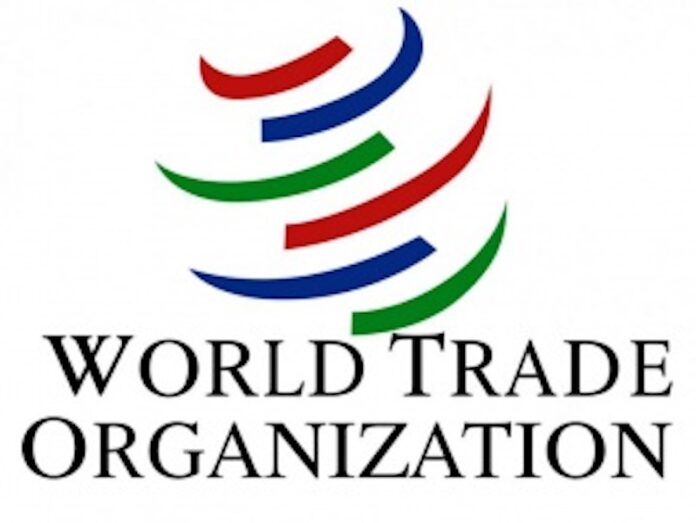WTO Urges Nigeria to Review Customs Procedures at Ports, Knocks High Rate of Physical Inspection
GOZIE AMADICH
The Trade Policy Review organ of the World Trade Organisation (WTO) expressed concerns over the high rate of physical inspection of containers at Nigerian ports. It urged the country to review its customs procedure to promote timely and cost-effective practices.
Members of the body also stated that longstanding import prohibitions on a wide array of agricultural products, coupled with tariff peaks and additional levies, had the potential to worsen food insecurity, higher food price inflation, and negatively affect private sector investments in the agricultural sector.
Many members of the trade policy review body also expressed concerns over the high number of outstanding notifications by Nigeria, including on anti-dumping, agriculture, subsidies, state trading enterprises, quantitative restrictions, and import licensing.
Those were part of the submissions made by members of the body during the just-ended sixth Trade Policy Review of the WTO, which focused on Nigeria.
The Ambassador of Nigeria to WTO, Adamu Abdulhamid, who doubles as Chairperson of the WTO Trade Policy Review Body for the 2024/2025 period, explained that the review provided Nigeria with a good opportunity to better understand and discuss the country’s trade policy developments since its previous review in 2017.
In his concluding remarks during the policy review session, which ended in Geneva, Switzerland, weekend, Abdulhamid stated that the policy review had in attendance Permanent Secretary, Federal Ministry of Industry Trade and Investment, Ambassador Nura Rimi, who led a delegation from Nigeria, as well as 51 other delegations from across the world who participated in the session, which lasted two days.
According to Rimi, members of the WTO Trade Policy Review Body consistently appreciated Nigeria’s active participation and constructive role at the WTO, including by ratifying the WTO Fisheries Subsidies Agreement.
Others were acceptance of the Protocol amending the TRIPS Agreement, and participating in the Joint Statement Initiatives on e-commerce, investment facilitation for development, MSMEs, and domestic regulation of trade in services.
Rimi stated, “Members also highlighted Nigeria’s constructive engagement in ongoing negotiations and its instrumental coordinating role concerning fisheries subsidies and agriculture negotiations.
“Some members encouraged Nigeria to join the Multi-Party Interim Appeal Arbitration Arrangement and the Government Procurement Agreement, as well as to incorporate the Services Domestic Regulation commitments into its WTO schedule of commitments.
“Members welcomed Nigeria’s initiative to undertake significant economic policy reforms against a particularly challenging global economic environment to strengthen its macroeconomic and fiscal situation,”
He explained that they highlighted three areas in particular, including the removal of fuel subsidies, saying by doing so Nigeria also sought to achieve positive results in the fight against climate change.
Rimi said, “Second, the introduction of a floating and market-driven foreign exchange rate system and removal of restrictions on the use of foreign exchange for imports.
“And third, efforts to improve its business and trade environment, including by adopting a new customs code, starting to improve tax administration, and enacting new copyright and competition acts.”
He pointed out that members also stressed that transparency and predictability in the business and investment environment would benefit from further reforms, including by improving the complex regulatory Technical Barriers to Trade (TBT) and Sanitary and Phytosanitary (SPS) frameworks.
Rimi stated, “Members also praised Nigeria’s various growth and development plans as well as its new trade and investment policies aimed at diversifying the economy.
“They also expressed strong interest in better understanding the implementation of existing subsidy schemes. In this context, some delegations noted the increasing share of trade in goods and services in Nigeria’s GDP, and highlighted the increase in the share of the manufacturing sector in GDP, which nearly doubled from 8.6% in 2017 to 15.7% in 2023.
“Members lauded Nigeria’s efforts on trade facilitation and for streamlining its customs procedures, including by introducing the Authorized Economic Operator scheme in 2024.”
Rimi said members expressed concern over the very high rate of physical inspection of containers and advised Nigeria to review its customs procedure with the aim of promoting timely and cost-effective customs practices.
Similarly, of concern was that longstanding import prohibitions on a wide array of agricultural products, coupled with tariff peaks and additional levies, had the potential to contribute to food insecurity, higher food prices inflation, and negatively affect private sector investments in the agricultural sector.
On tariffs generally, members expressed concern that Nigeria had bound only 19.7 per cent of its tariff lines, with the average bound rate standing at 120 per cent, while the average applied rate was 12.8 per cent in 2023.
In this regard, members encouraged Nigeria to enhance predictability and good governance, and to increase its binding coverage as well as reduce the bound rates.
There were also concerns over the high number of outstanding notifications by Nigeria, including on anti-dumping, agriculture, subsidies, State Trading Enterprises, quantitative restrictions, and import licensing.
The Nigerian delegation indicated that they would work to address these outstanding notifications and make use of technical assistance provided by the WTO secretariat.
However, the chairperson disclosed that members commended Nigeria for its efforts to enhance women’s economic empowerment aimed at achieving gender equality, economic development, prosperity, and foster security.
They welcomed Nigeria’s new legislation on data protection and electronic signatures, which could play an important role to support digital trade.
Rimi said, “Members welcomed Nigeria’s regional integration efforts as being a key member of the Economic Community of West African States (ECOWAS) and the African Continental Free Trade Area (AfCFTA).
“In this context, some Members showed interest in Nigeria’s experience with establishing a National Action Committee to accelerate implementation of the AfCFTA.
“In conclusion, the delegation of Nigeria has shown that it regards the Trade Policy Review Mechanism and the Multilateral Trading System highly through its active and positive engagement over this two-day meeting. I hope that the many constructive suggestions made by Members during this Review would help inform Nigeria’s efforts to further improve its policies, as indicated by the Head of Delegation on the very first day and some members during the Review.”

























